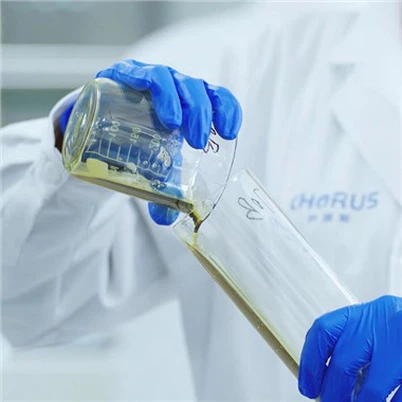Why Does A Car Radiator Coolant Need Rust Inhibitors?
Leave a message
Frequently asked questions about coolant rust inhibitors.
Automobile engine coolant (antifreeze) is the circulating heat transfer medium in the cooling system of a car's water-cooled engine. It is an indispensable component for the operation of the car engine.
The main functions of a car coolant are:
- Take away the heat generated by the engine running;
- Prevent boiling at high temperatures and freezing at low temperatures;
- Protect the metal parts of the engine cooling system from rust, corrosion, and cavitation;
- Prevent the engine cooling system scaling.

What are the basic Chemicals of a car coolant?
A vehicle coolant is composed of water, ethylene glycol or propylene glycol, and various additives.
Additives are mainly composed of corrosion inhibitors, antifoamers, dyes, anti-scalants, fungicides, etc.
Corrosion inhibitors are generally composed of several or even dozens of chemicals in a certain ratio, which have a good chemical balance to protect all metal parts of the engine's cooling system.
What are coolant rust inhibitors?
The engine cooling system includes cast iron, cast aluminum, steel, copper, brass and solder. In the early days, brass and cast iron were the main materials. Now, light vehicles mostly use cast aluminum, and heavy-duty trucks still use cast iron.
An anti-corrosion additive package should be blended into the base ( water and MEG) to prevent corrosion in the cooling system of a vehicle, they work together to protect the metal parts in the engine coolant system.
Commonly Corrosion Inhibitor Chemicals in Coolant |
||
| Compound | Dosage/% | Function and Characteristics |
| Phosphates | 0.2~2.0 | Prevents corrosion of copper, aluminum, and iron; prevents aluminum cavitation; buffers pH. |
| Primary and Secondary Amines | 0.25~2.5 | Protects aluminum alloys and cast iron; buffers pH. Forms carcinogenic nitrosamines with nitrites and complexes with copper. |
| Borates | 0.2~1.5 | Protects iron, solder, and brass; neutralizes acids; forms protective film. Promotes aluminum corrosion at high temperatures. |
| Silicates | 0.05~1.0 | Protects aluminum from cavitation; sensitive to pH; may form gel with phosphates. Requires stabilizers. |
| Molybdates | 0.005~0.5 | Long-term corrosion protection for iron; prevents aluminum solder erosion and cavitation. |
| Nitrates and Nitrites | 0.01~1.0 | Prevents iron corrosion; nitrites protect against cavitation in heavy-duty engines; buffer pH. |
| Organic Acids | 1~3 | Protects steel, aluminum, and solder; forms complexes to prevent rust and pitting. |
| Nitrogen Heterocycles | 0.1~0.4 | Excellent protection for copper and brass. |
Chorus' Coolant Corrosion Inhibitor Package AC7040 is a superior performance long-life organic acid technology (OAT) corrosion inhibitor that offers the following benefits:
- Long service life- 5 years of coolant life.
- Excellent protection against rust and corrosion of metals in cooling systems.
- Excellent protection against cavitation corrosion of aluminum alloys
- Excellent anti-scaling performance.






